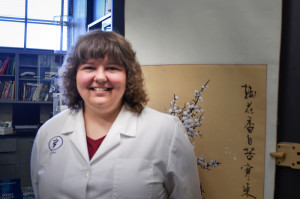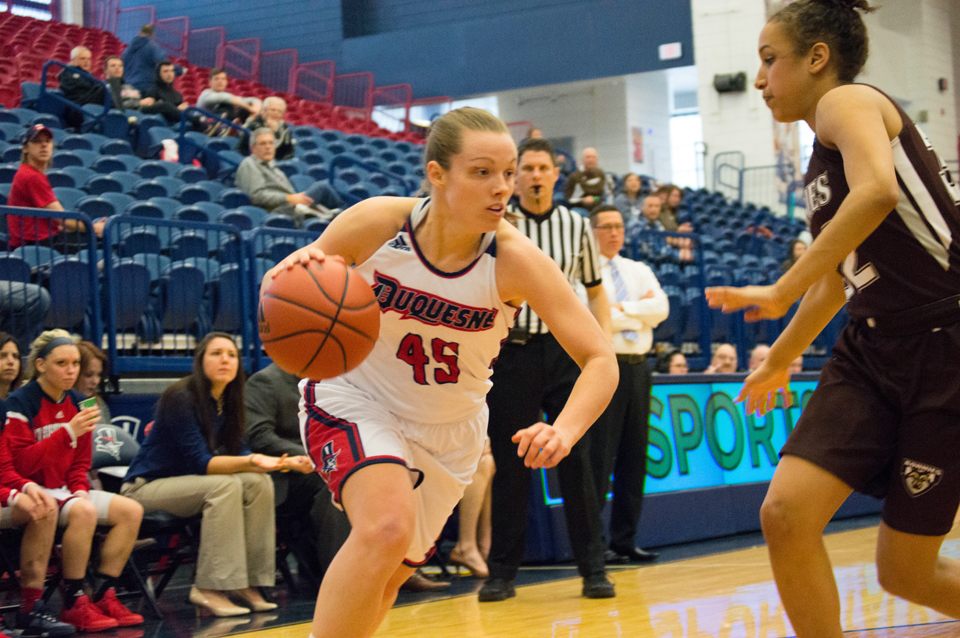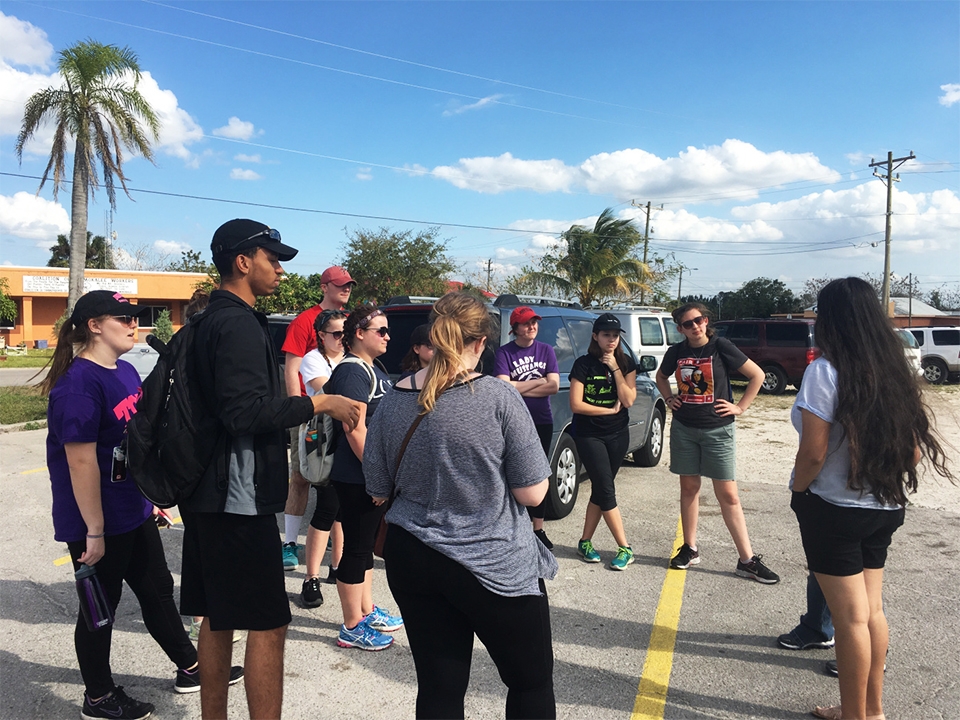
By Carolyn Conte | The Duquesne Duke
A friendly giggle bounces off walls decorated with framed photos of cats. This cheery atmosphere is the office of Duquesne biology professor Becky Morrow, proud cat-lady and weekend superhero to Western Pennsylvania residents.
Morrow, a veterinarian, provides free treatment to feral cats from her mobile clinic, Frankie’s Friends Rescue, in which she performs approximately 50 surgeries per clinic day, which can amount to a hundred per weekend for her personally. The clinic spays, neuters and vaccinates the wild, abandoned, runaway cats.
Morrow, who has taught at Duquesne since 2005, originally started the mobile clinic in 2010 to support leftover cats from Tiger Ranch Cat Sanctuary, which was closed after being found neglectful of their animals.
“I figured, we have skills — we’re not going to have a bake sale, we’re going to use those skills,” Morrow said.
With the help of a Harley-Hauler from Craigslist, items from Ebay and her own backyard, Morrow earned money to support the cats through the clinic. What started off as a small group with her mother as the secretary now consists of seven medical aides and seven sanctuary volunteers. In 2010, the clinic was approved as a nonprofit organization.
“There’s this population of cats that most people don’t even realize are around, perhaps 60 to 70 million cats in the United States alone, that are considered community cats,” Morrow said. “We call them community cats because that can be a mixture of feral cats who are not handleable – that you cannot pet just as you cannot go pet a raccoon – and we also include strays, abandoned cats.”
By neutering and spaying cats, the mobile clinic prevents the unfriendly actions of non-spayed/neutered cats (vocalization, fighting, sickly kittens, and perhaps most importantly, the spread of diseases). Trapped, neutered, and returned patients act as a “buffer zone for rabies” because they kill rodents and are vaccinated against rabies.
Philip Reeder, dean of the Bayer School of Natural and Environmental Sciences, said he thinks Morrow’s project is “fantastic.”
“Overpopulation is bad for both residents and cats, so it’s a very humane way to maintain cat populations,” Reeder said. “I think [Morrow is] a perfect example of the teacher motto.”
Morrow’s Super Lab student Jen Stripe describes her as “very happy and bubbly. She’s actually really interested in her work and makes you interested in learning about it.”
Almost every weekend this March, Morrow will travel to a different area of Pennsylvania to spay and neuter cats. Approximately 50 cats will be spayed and neutered per clinic, though she once managed 67 in one day.
Unfortunately, the axle on the mobile clinic snapped last weekend on their way to Elizabeth, Pennsylvania. While that didn’t stop them from performing surgeries, they are looking for donors through www.Frundrazr.com.
Morrow said she hopes to make Pittsburgh the city that others will emulate and learn from.
“We have in place some great shelters and people that are doing a lot of spay and neuter, but we need to work together to get ahead of the population growth,” Morrow said. According to the U.S. Humane Society, an estimate of 6 to 8 million cats and dogs are put in shelters per year. Around 4 million of them, often healthy and adoptable, are euthanized.
Morrow also said she wants Duquesne to be more animal-friendly.
“A lot of students are away from their pets,” Morrow said. “I think having the ability to have various rescue groups or other groups able to participate in during exams to decrease stress levels.”



